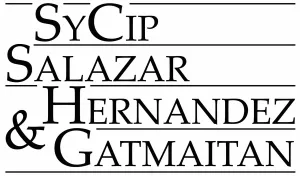- in Asia
- in Asia
- in Asia
- in Asia
- within Media, Telecoms, IT, Entertainment, Environment and Technology topic(s)
1. Attracting More Foreign Businesses in the Philippines
On March 2, 2022, the President signed into law Republic Act (R.A.) No. 11647 which amends the three-decade old Foreign Investments Act of 1991 (FIA). R.A. No. 11647 aims to attract, promote, and welcome productive foreign investments in activities where foreign investment is allowed under the Philippine Constitution and relevant laws. This law encourages foreign investors to invest in the Philippines and is geared towards making it more competitive with neighboring countries in the ASEAN region.
The amendments under R.A. No. 11647 primarily seek to open the Philippines by lessening barriers for the entry of foreign investments to drive the country's economic growth and to help the Philippines recover from the adverse effects of the COVID-19 pandemic. Thus, R.A. No. 11647 allows foreign investors to invest in up to 100% of a domestic enterprise unless participation of foreigners is prohibited or limited as provided under the Philippine Constitution and other relevant laws.
Following the reduction in the required minimum paid-up capital for foreign-owned corporations intending to engage in retail trade business in the Philippines pursuant to R.A. No. 8762, as amended by R.A. No. 11595, R.A. No. 11647 provides that micro and small domestic market enterprises (MSEs) with paid-in capital of less than US$200,000.00 shall only be limited to Philippine nationals. A domestic market enterprise is an enterprise which produces goods for sale or renders services to the domestic market entirely or if exporting a portion of its output fails to consistently export at least 60% thereof. Under the Magna Carta for Micro, Small and Medium Enterprise, micro, small and medium enterprises are engaged in industry, agribusiness and/or services. A domestic market enterprise is considered micro if its total assets is not more than PhP3,000,000.00 and it is considered small if its total assets is more than PhP3,000,000.00 but not more than PhP15,000,000.00.
SyCipLaw TIP1:
The Philippine government has approved amendments not only to the FIA, but also to other special laws such as the Retail Trade Liberalization Act, the Public Service Act, the Revised Corporation Code and the Tax Code. The government likewise launched innovations such as the online filing system of the SEC to make the processing of the registration of Philippine entities faster and more convenient to the applicants pursuant to the Ease of Doing Business and Efficient Government Service Delivery Act of 2018. These amendments and innovations implemented by the government signify its efforts to develop a more competitive investment environment and to make it easier for foreign investors to set up their business in the Philippines. We suggest that foreign investors intending to invest in the Philippines seek advice on their proposed investments to help them navigate the current investment regime in the Philippines.
To view the full article please click here.
The content of this article is intended to provide a general guide to the subject matter. Specialist advice should be sought about your specific circumstances.

